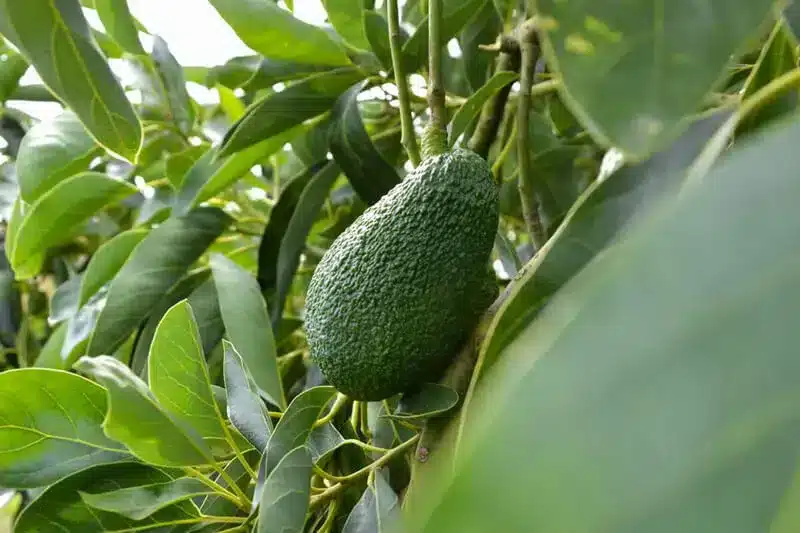Project to use 67% of available underground water: 11 million litres of water per day
“There is a new project under evaluation for planting 722 hectares with avocados (one of the fruits that consume the most water) in the borough of Alcácer do Sal, which is one of the areas most affected by low rainfall in recent decades”.
This is the opening sentence of a shocking text in Expresso this week, highlighting the imbalances at play when it comes to agricultural policies.
As the paper stresses, the area of avocados in southern Portugal has doubled in the last decade. It is seven times greater than it was 30 years ago – yet the Algarve and Alentejo districts are struggling with lack of sufficient rainfall.
“The critical state of the body of water in the Tejo-Sado basin led the Permanent Drought Commission to suspend all new borehole licences last summer”, Expresso continues. “However, the Projeto Agroflorestal das Herdades de Murta e Monte Novo involves opening 34 boreholes to irrigate 722.24 hectares of avocados.
“Just the area earmarked for this project is equivalent to 10 times the area devoted to avocados in the municipality and 9% of the total area devoted to this subtropical fruit in Portugal”.
Farmer Luís Días is quoted as “lamenting”: “These projects do not work in isolation. They have cumulative impacts that affect the whole region (…) If we combine all these agricultural projects to the golf courses and touristic developments, we are walking towards the disaster that has been announced for the coastal Alentejo”.
Expresso does not develop “the disaster that has been announced”, but it has been foretold time and again, including by one of the paper’s regular columnists, in this particular instance decrying a massive avocado plantation in the steadily-drying up Algarve.
Miguel Sousa Tavares said three years ago that it was time to treat “the issue of water as an absolute priority”. This did not appear to happen.
Fast forward to today in which the southern areas of the country are visibily shrinking under worsening situations of ‘drought’ – conditions we have been told could see restrictions coming into place for households in the early New Year – and this latest project is in public consultation, with so far only three people having found the time to say how they feel about it.
Luís Dias may be one of them (there is no way of telling). He tells Expresso that the cork oaks on his land are dying as their roots no longer reach underground water. If this new project does get the green light it seeks – and if abundant rain does not bless the region (for yet another year running) – underground water levels can only recede a great deal further.
According to Expresso, Fernando do Infante da Câmara, the director general of the Aquaterra/Expoente Frugal group behind the plan, “had no knowledge of the suspension” of authorisations for new boreholes in the area.
“It was never officially communicated to us”, he is quoted as telling the paper. “But we are fully aware that the use of water is subject to evolving, even regressive, conditions, depending on the state of the body of (underground) water”.
And this is where the non-sequiters pile in: APA, the Portuguese Environment Agency, describes the left bank of the Tejo-Sado basin (the one facing south, in other words) as being “affected by an expressive reduction in rainfall, with successive periods of drought and an increase in the use of borehole water, which has led to significant falls in the levels” of water held underground.
But “just between 2021 and 2023, APA issued 54 water utilisation permits for (underground) abstractions for irrigation purposes” in Alcácer do Sal.
“According to the agency, “the maximum annual volume authorisation for abstractions is 4,827 hm3. Yet this project on its own seeks to capture 3,22 hm3 of subterranean water per year, from two depth levels, according to its non-technical report. In total, 11.8 million litres of water per day will be necessary to water the (avocados)”.
Expresso stresses that neither APA nor the Ministry of Environment have made comments on this project under evaluation. Its approval will require a positive environmental impact study by the CCDR, the regional commission for coordination and development of the Alentejo.
In the last five years, the CCDR has approved four other agricultural projects in the same parishes, as well as another one in the municipality. This translates into more than 2,000 hectares of intensive agricultural projects (or monocultures, the environmental consequences of which are generally dramatic) in the coastal Alentejo.
This latest mass avocado project is open to public participation on the ‘public participation portal’ until January 24.
natasha.donn@portugalresident.com


























